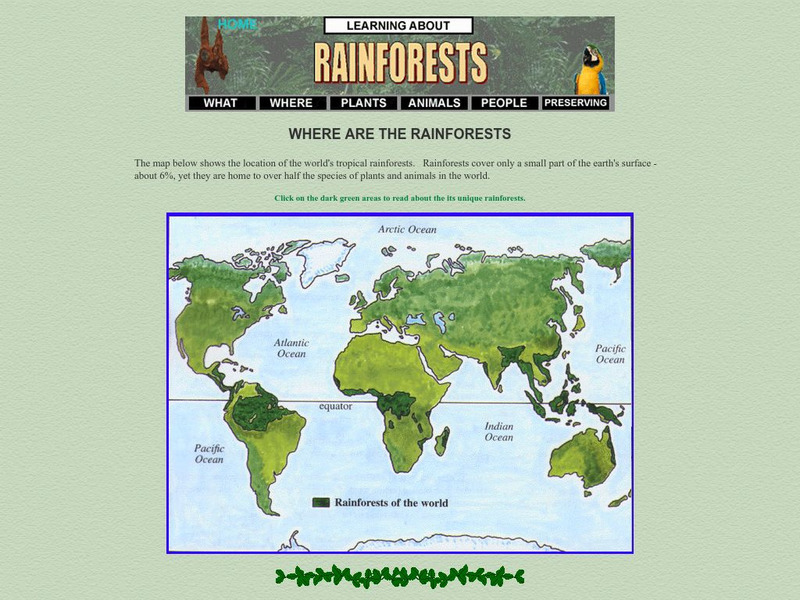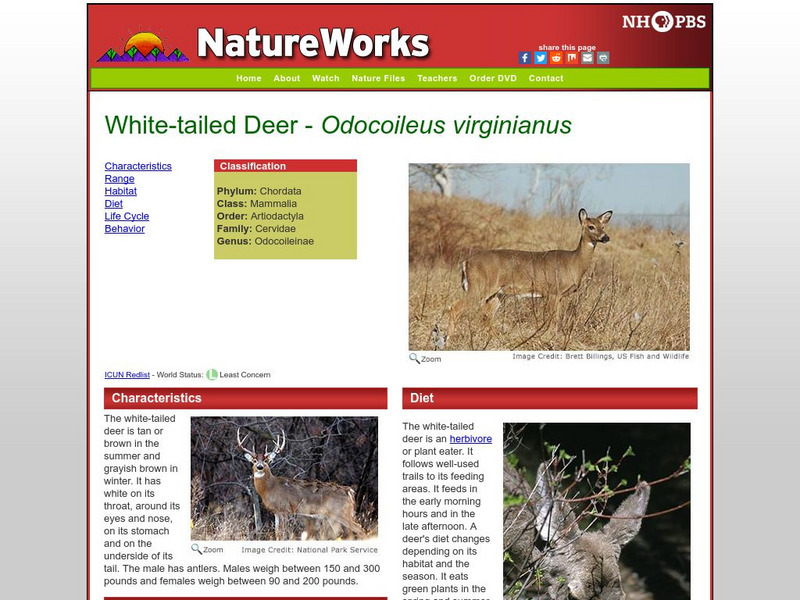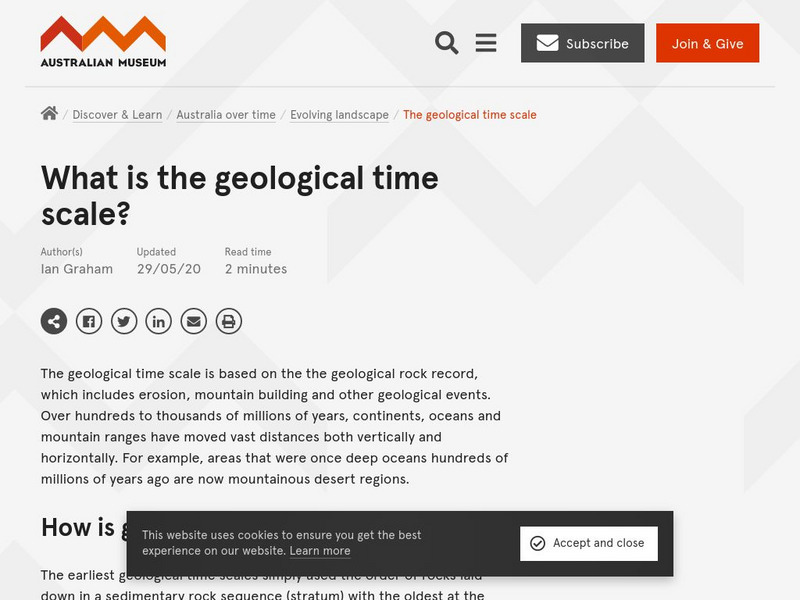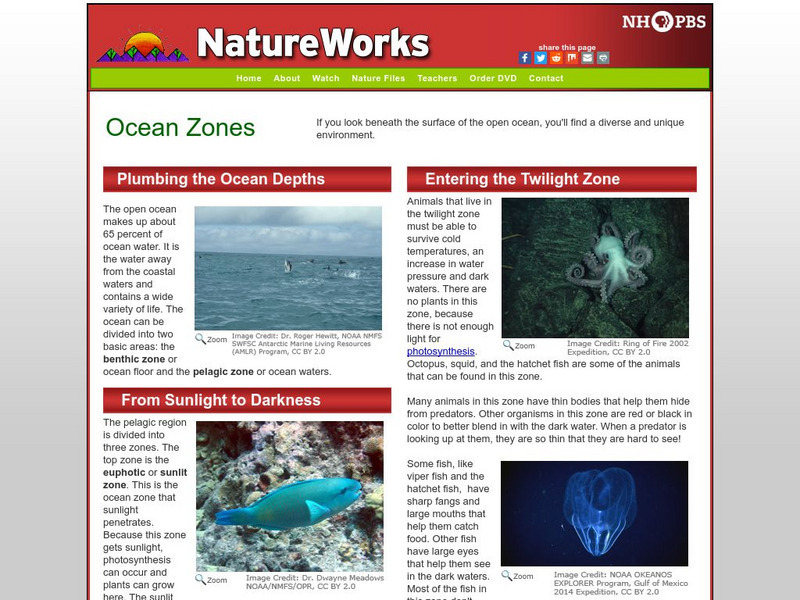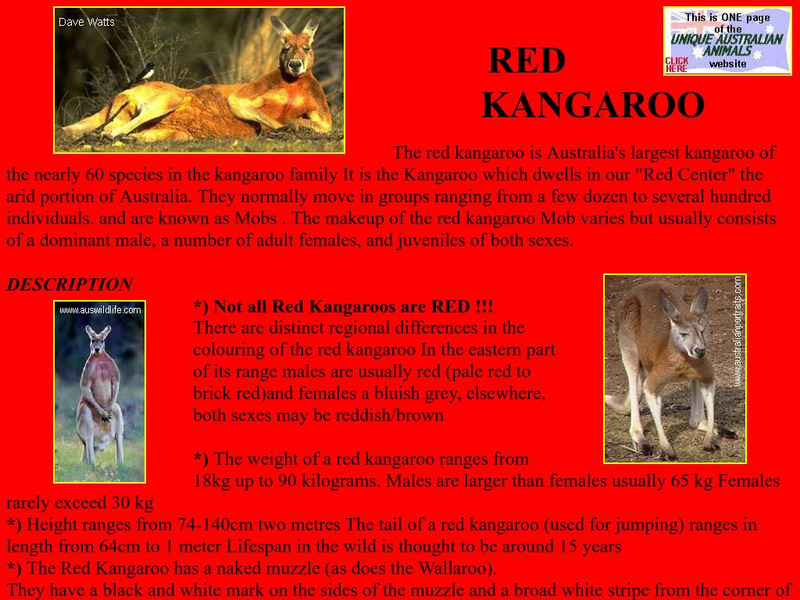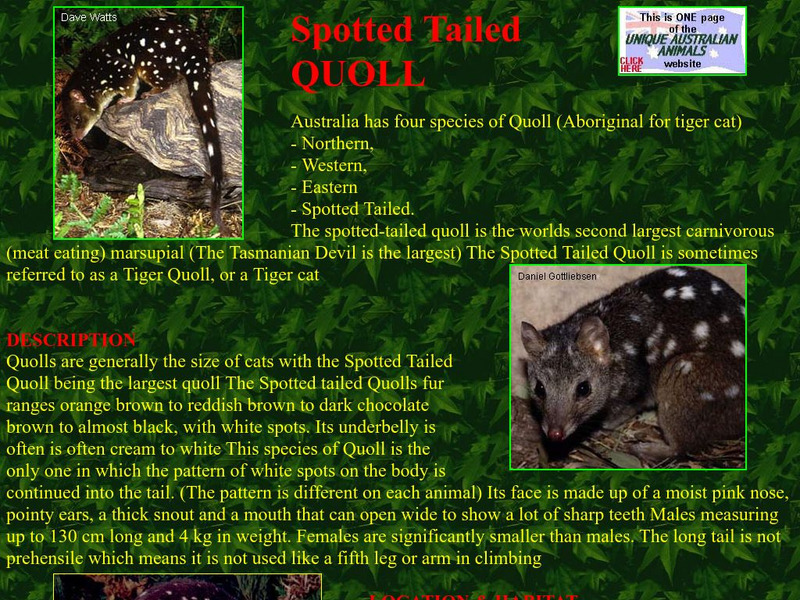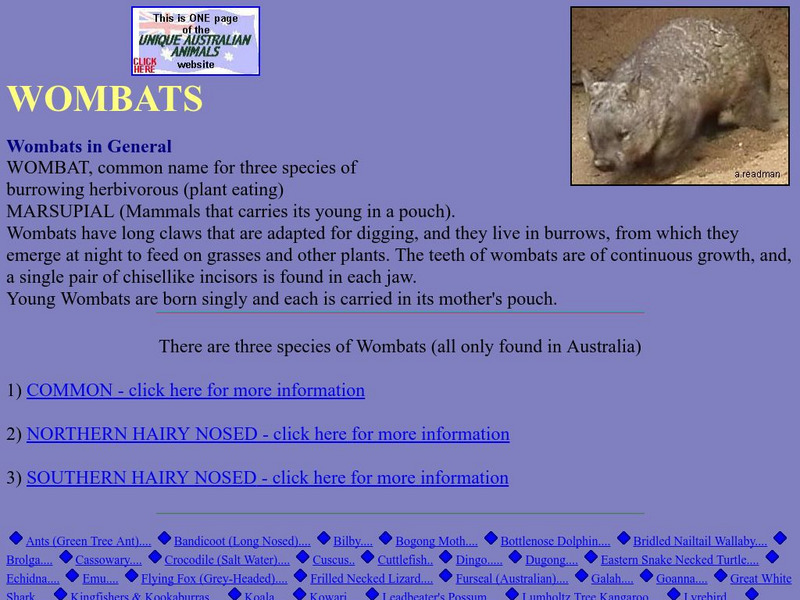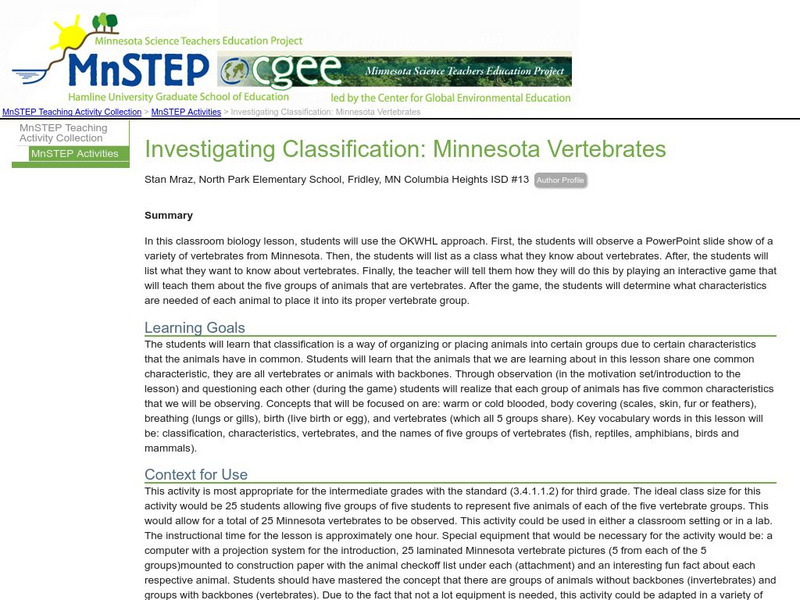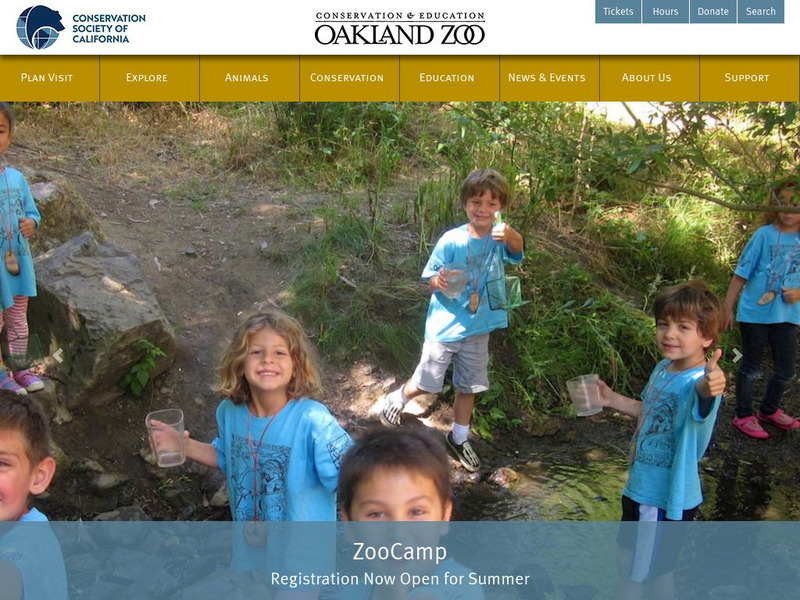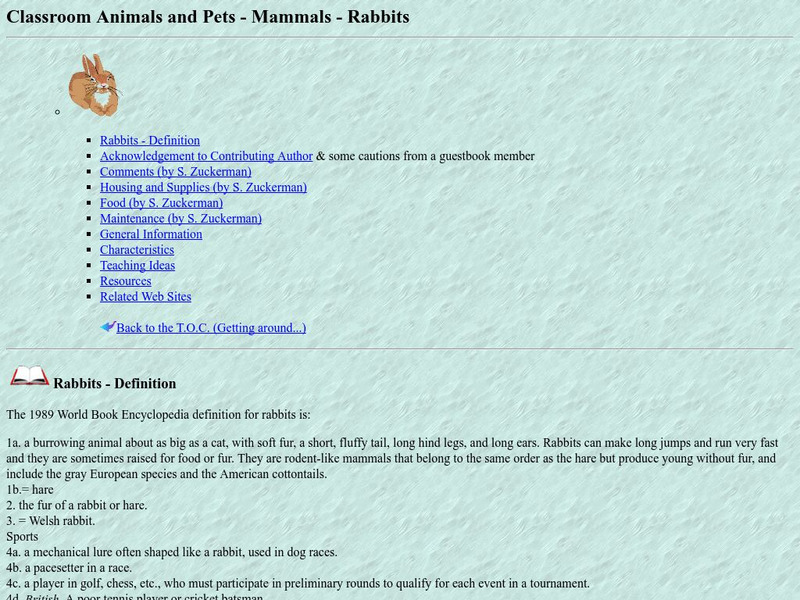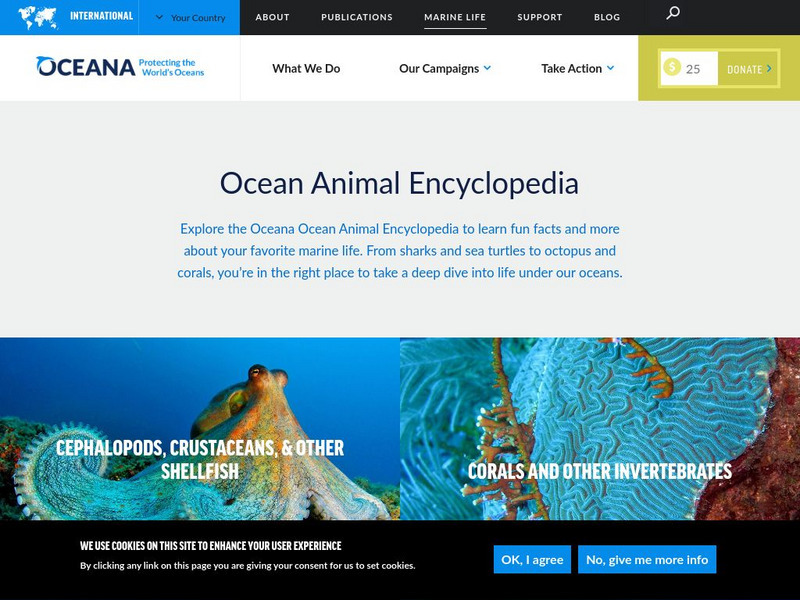California Institute of Technology
Marshall Middle School/ Tf of the Pacific Northwest
Information about temperate forests, birds, mammals, plants and resources. There are numerous links about each of the topics mentioned above.
Smithsonian Institution
Smithsonian National Zoo: Zoogoer Magazine: Teeming Life in Gabon's Rainforest
The article, "Teeming Life in Gabon's Rainforest," covers a variety of topics related to rain forest life including A Plethora of Plants, What's in the Water, New and Exciting Herps, Birds in the Mist (Nets), Magnificent Mammals, and more.
BBC
Bbc Nature: Walruses, Seals and Sea Lions
Dive in amongst the pinnipeds - the seals, walrus and sea lions - for a taste of what life is like for fin-footed, semi-aquatic mammals. Flat flippers help give these typically rotund, barrel-shaped animals an unlikely grace and beauty...
CK-12 Foundation
Ck 12: Life Science: Cloning
[Free Registration/Login may be required to access all resource tools.] Cloning is the process of creating an exact replica of an organism. The clone's DNA is exactly the same as the parent's DNA. Bacteria and plants have long been able...
PBS
Nh Pbs: Nature Works: White Tailed Deer
Find out what makes the White-Tailed Deer unique when you explore this educational resource. This site identifies characteristics, life cycle, range, behavior, habitat and diet for this mammal.
Australian Museum
Australian Museum: The Geological Time Scale
What was Australia like during prehistoric times? Follow through history from 110 million years ago until the present and discover the different mammals, birds, and reptiles.
Sea World Parks & Entertainment
Sea World: Polar Bears
Outlines the characteristics of the polar bear, including classification, habitat, behaviors, and conservation. Helps students identify with polar bears with a list of "Books for Young Readers." Information at a level of upper...
Science Struck
Science Struck: Facts About the Cenozoic Era and Its Life Forms
Describes the different periods, epochs, and stages of the Cenozoic Era and the events that took place in them. Looks at geology and tectonic plate movements, climate, flora and fauna, and the emergence of mammals as the dominant life...
PBS
Nh Pbs: Nature Works: Ocean Zones
Discover more about the underocean environment at this site that surveys animals, environmental factors such as light and temperature, currents, animals, plants, and the like.
CK-12 Foundation
Ck 12: Third Grade Science: Life Sci: Animal Characteristics and Classification
[Free Registration/Login may be required to access all resource tools.] Presents an overview of the major animals groups (mammals, birds, reptiles, amphibians, fish, arthropods, vertebrates, invertebrates, those having live births and...
Other
Georgia Perimeter College: The Permian Period
This resource provides basic information of the changes that took place during the Permian period as well as the animals that populated the Earth during this time.
Unique Australian Animals
Unique Australian Animals: Red Kangaroo
This article, illustrated with many photographs, profiles the red kangarook, Australia's largest kangaroo from nearly 60 species.
Unique Australian Animals
Unique Australian Animals: Wallaroo (Euro)
Read this description of a Wallaroo to find out why this animal is not a wallaby or a kangaroo.
Unique Australian Animals
Unique Australian Animals: Spotted Tailed Quoll
The world's second largest carnivorous marsupial, the spotted tailed quoll, is no bigger than a domestic cat and found only in Australia.
Unique Australian Animals
Unique Australian Animals: The Southern Right Whale
Dive into the world of the Southern Right Whale. Visit this webpage to learn more about this Australian whale.
Unique Australian Animals
Unique Australian Animals: Wombat
Visit this webpage to learn more about the wombat.
Sheppard Software
Sheppard Software: Porcupines
Some pictures and facts about porcupines, their appearance, and behavior.
Science Education Resource Center at Carleton College
Serc: Investigating Classification: Minnesota Vertebrates
This lesson serves as an introduction to classification. The students will place animals into its proper vertebrate group according to certain characteristics that the animals have in common.
Oakland Zoo
Oakland Zoo: Welcome to the Oakland Zoo
Site allows users to tour the Oakland Zoo and view all types of animals from A-Z. Offers links to cool stuff and a world safari.
CK-12 Foundation
Ck 12: Life Science: 10.2 Vertebrate Diversity
Learn about the characteristics and diversity of vertebrate animals.
Other
Classroom Animals and Pets Rabbits
An interesting site that provides a wealth of information about keeping rabbits as pets in the classroom. Housing and supplies, maintenance, food, and teaching ideas are several of the topics covered.
Other
Oceana: Marine Animal Encyclopedia
Learn about marine animals with this marien animal encyclopedia. Animals are arranged by species.
Read Works
Read Works: Meerkat Lessons
[Free Registration/Login Required] Students read about an African mammal called a meerkat. A question sheet is available to help students build reading comprehension skills.
Other
Rainforest Alliance: Species Profiles
This resource has rain-forest species profiles for amphibians, birds, mammals, insects, and plants. Each profile explains the organism's anatomy, habitat, diet, and threats.
Other popular searches
- Classify Animals and Mammals
- Australian Animals Mammals
- Science Animals Mammals
- Animals Mammals Activities
- Animals Mammals Reproduction


